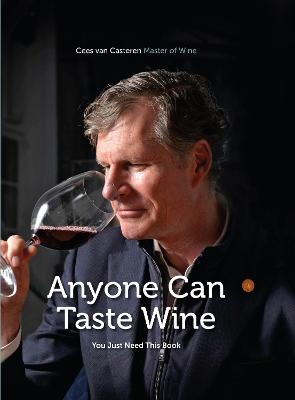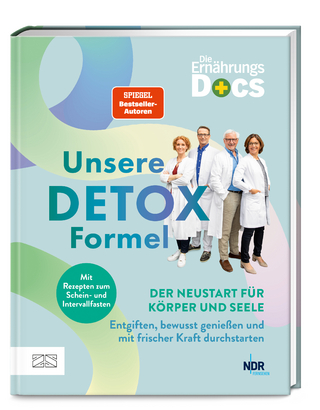
Anyone Can Taste Wine
(You Just Need This Book)
Seiten
2022
Open Universe (Verlag)
978-1-63770-034-1 (ISBN)
Open Universe (Verlag)
978-1-63770-034-1 (ISBN)
If you love wine, this book will give you all the knowledge and self-confidence you need to become a world-class wine taster. It reveals in methodical steps exactly how to acquire essential wine-tasting skills. Cees (it's pronounced 'Case') van Casteren is a brilliant scientist, author, and international wine competition judge, as well as one of the global super-elite (less than 500 top experts worldwide) who have been able to earn the supreme title, Master of Wine.
Anyone Can Taste Wine first appeared in Dutch and instantly established itself in the Netherlands as far and away the most authoritative and popular book on the subject.
From the book's introductory chapter:
"Many people typically believe that the ability to taste comes from some kind of inborn, innate aptitude-as though 'taste' were a genetic hand-me-down-something that you either have, or you don't have. But that's not true.
"Wine tasting is a skill. Anyone can taste wine, as long as they have normally functioning senses of smell and taste. Anyone (that is) who is motivated to learn and practice-a lot-can become a good wine taster. Genes or no genes.
"Much of this skill will involve awareness of how to train your senses. While there are genetic differences between humans in terms of smelling and tasting, these innate differences do not make one taster better than another. Research by taste professor Linda Bartoshuk, previously at the University of Yale, has shown that a wine taster's ability to taste is mainly due to the amount of training that the taster has experienced. Specifically, exercises dedicated to recognizing wine scents and developing an attendant wine language are the main contributing factors in developing wine tasting abilities. The difficulty that most besets inexperienced tasters is a lack of suitable vocabulary that would enable them to name and describe the flavors and scents that they taste and smell. This vital skill, being able to describe flavors and aromas in words, remains a common problem, even for the most experienced of wine tasters. According to Professor Tim Jacob of Cardiff University, a method that will enable you to associate smells and flavors with a suitable repertoire of words will contribute greatly to the enhancement of tasting skills . . . that is . . . you just need a method. The more user-friendly, the easier it will be to learn and remember.
And that's exactly what I realized at the start of my Master of Wine studies. The method had to be user-friendly in order to help me to remember all relevant aspects for tasting, describing, and analyzing the wine. In search of these aspects, I started with . . . the wine itself. With this fascinating blend of water (colorless, odorless, tasteless), alcohol (colorless, odorless, slightly sweet), acids, sugars, pigments, aromas, and tannins which together give wine its color, smell, and taste.
"And I was quite quick to learn that this very curious and complex combination of color, aromas, alcohol, acids, sugars and tannins actually were the 'relevant aspects' I was looking for, and therefore the targets of my attention while developing a method. The answer to my quest was indeed in the wine itself!"
Anyone Can Taste Wine first appeared in Dutch and instantly established itself in the Netherlands as far and away the most authoritative and popular book on the subject.
From the book's introductory chapter:
"Many people typically believe that the ability to taste comes from some kind of inborn, innate aptitude-as though 'taste' were a genetic hand-me-down-something that you either have, or you don't have. But that's not true.
"Wine tasting is a skill. Anyone can taste wine, as long as they have normally functioning senses of smell and taste. Anyone (that is) who is motivated to learn and practice-a lot-can become a good wine taster. Genes or no genes.
"Much of this skill will involve awareness of how to train your senses. While there are genetic differences between humans in terms of smelling and tasting, these innate differences do not make one taster better than another. Research by taste professor Linda Bartoshuk, previously at the University of Yale, has shown that a wine taster's ability to taste is mainly due to the amount of training that the taster has experienced. Specifically, exercises dedicated to recognizing wine scents and developing an attendant wine language are the main contributing factors in developing wine tasting abilities. The difficulty that most besets inexperienced tasters is a lack of suitable vocabulary that would enable them to name and describe the flavors and scents that they taste and smell. This vital skill, being able to describe flavors and aromas in words, remains a common problem, even for the most experienced of wine tasters. According to Professor Tim Jacob of Cardiff University, a method that will enable you to associate smells and flavors with a suitable repertoire of words will contribute greatly to the enhancement of tasting skills . . . that is . . . you just need a method. The more user-friendly, the easier it will be to learn and remember.
And that's exactly what I realized at the start of my Master of Wine studies. The method had to be user-friendly in order to help me to remember all relevant aspects for tasting, describing, and analyzing the wine. In search of these aspects, I started with . . . the wine itself. With this fascinating blend of water (colorless, odorless, tasteless), alcohol (colorless, odorless, slightly sweet), acids, sugars, pigments, aromas, and tannins which together give wine its color, smell, and taste.
"And I was quite quick to learn that this very curious and complex combination of color, aromas, alcohol, acids, sugars and tannins actually were the 'relevant aspects' I was looking for, and therefore the targets of my attention while developing a method. The answer to my quest was indeed in the wine itself!"
Cees van Casteren MW started writing about wine in 2004. Since this time, he has written eleven books and over 600 articles on food and wine. He is a noted wine educator in the Netherlands, and runs his own independent wine consultancy and training business. Among his clients are Lallemand (Canada) and the Ministry of Foreign Affairs for the Kingdom of The Netherlands. Cees has twice been named Dutch Vinologist of the Year in Holland. He is currently serving as Chairman of the Association of Vinologists.
| Erscheinungsdatum | 13.10.2023 |
|---|---|
| Übersetzer | Dr. Jaime Goode |
| Zusatzinfo | Illustrations |
| Sprache | englisch |
| Maße | 254 x 279 mm |
| Themenwelt | Sachbuch/Ratgeber ► Essen / Trinken ► Grundkochbücher |
| Sachbuch/Ratgeber ► Essen / Trinken ► Getränke | |
| ISBN-10 | 1-63770-034-2 / 1637700342 |
| ISBN-13 | 978-1-63770-034-1 / 9781637700341 |
| Zustand | Neuware |
| Informationen gemäß Produktsicherheitsverordnung (GPSR) | |
| Haben Sie eine Frage zum Produkt? |
Mehr entdecken
aus dem Bereich
aus dem Bereich
der Neustart für Körper und Seele : entgiften, bewusst genießen und …
Buch | Hardcover (2025)
ZS (Verlag)
CHF 34,95
deine Lieblingsrezepte - einfach gemacht!
Buch | Hardcover (2023)
Gräfe und Unzer (Verlag)
CHF 39,90
wie du zu Hause die beste Pizza deines Lebens backst
Buch | Hardcover (2024)
Becker Joest Volk Verlag
CHF 41,90


